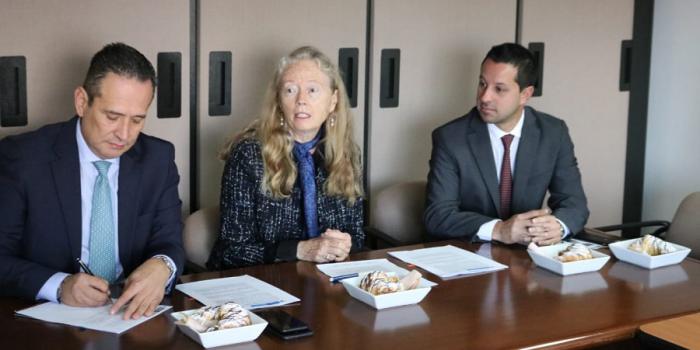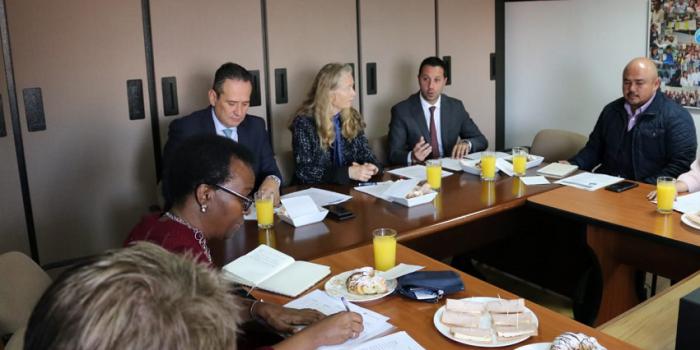
World Food Program of UN will support the reparation of victims
The Victims Unit and the World Food Program (WFP) of United Nations (UN) signed an agreement to strengthen humanitarian food assistance and improve the food and nutrition security of the population affected by armed conflict, among others themes.


The director of Victims Unit, Ramón Rodríguez Andrade and the representative of World Food Program (WFP) of UN, Deborah Hines signed an agreement that will strengthen the humanitarian food assistance of people affected by armed conflict, as well as various aspects related to food and nutrition security of said population.
In this way, WFP will support the implementation of Victims Law (1448 of 2011) with strategies that seek to achieve compliance with the Sustainable Development Goals.
Ramón Rodríguez expressed that this agreement is important "fundamentally in the attention of humanitarian emergencies, in focus issues, and we will carry out specific actions in the care of the victims in Chocó, Nariño, Cauca and part of the Catatumbo, and actions in food security, in conditional transfers; we seek to improve the attention to each of victims in the territory".
The official said that the Unit has learned a lot from WFP on conditional transfer issues and WFP has learned from what the Unit does with the payments of the humanitarian aid remittances throughout the national territory.
The Unit and the WFP have worked more informally for several years in different territories of the country, but this is the first time that an agreement has been signed at the national level.
The WFP representative in Colombia, Deborah Hines, stated that "this agreement is an important step in terms of consolidating the collaboration between the Victims' Unit and the World Food Program. We discussed and we have very specific actions in the territory but this agreement gives the opportunity to give more clarity in the activities of national level and territorial level".
About the actions that have already been developed in several regions, Deborah Hines said: "For example, in Nariño, with return processes, especially in indigenous communities and our hope is to support the Unit in establishing measures of life for displaced persons and the confined communities".
Among the lines of action established in the agreement is also the improvement of food and nutritional security conditions of victims through the rescue and use of native foods and the promotion of healthy practices, as well as strengthening the institutional capacities of Unit in processes applied to food security issues and the promotion of exchange of knowledge and experiences in relation to rehabilitation of social fabric and livelihoods of the victim population, with an ethnic and gender differential approach.






